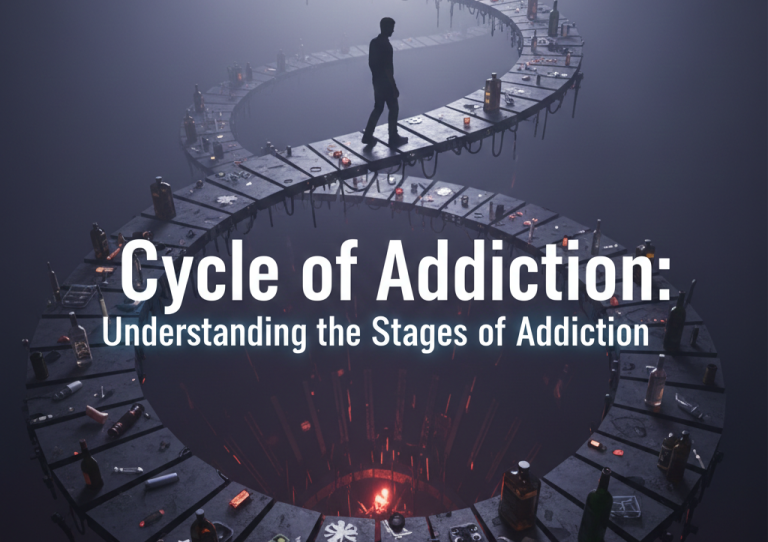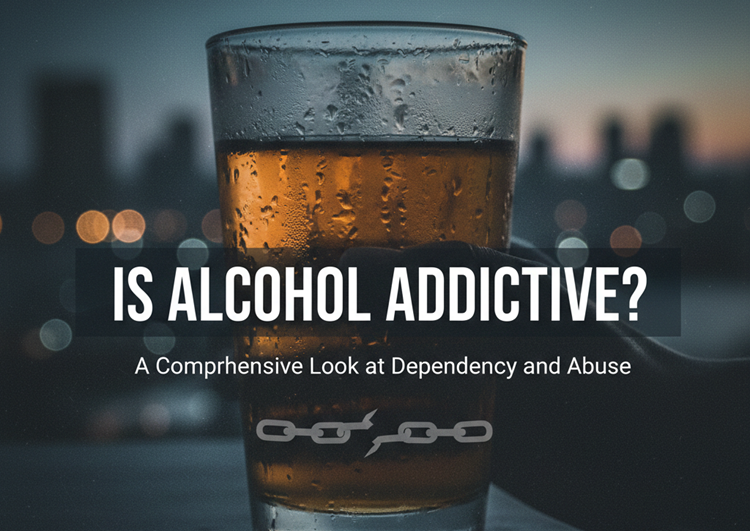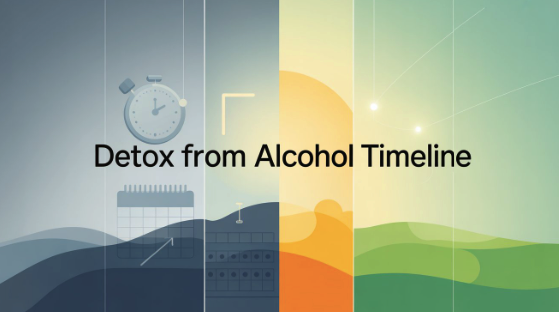Drug use and addiction are severe problems affecting millions of people in the world. Some might think it’s fine to use drugs occasionally, but once a person has fallen into the habit, it’s easy to become dependent on drugs. It’s essential to understand how addiction begins, from first use to addiction, and what’s fueling it. In this blog, we will look at the causes, effects, and solutions for drug addiction as well as the role of treatment in recovery.
What is Drug Use and Addiction?
In simple words, drug use means taking substances to alter one’s mood; perception; or cognitive function. Though initial use is harmless, repeated use can result in physical and psychological dependence. Addiction – also known as substance use disorder – is a chronic disease of the brain that causes people to compulsively use drugs or alcohol despite harmful effects.
Opioids, stimulants, or depressants, for instance, affect the chemical balance of the brain, usually to the extent that mood, behavior, and overall functionality change. But these changes fuel a cycle of reward and reinforcement that leads to addiction. To break the stigma, it is important to think of addiction as a medical condition rather than an ethical failing.
Common Reasons for Drug Use
People turn to drugs for various reasons, often influenced by personal, social, or environmental factors:
- Coping with Stress or Trauma: Drugs become used by many people as an escape from emotional pains, stress, or traumatic experiences. They offer temporary relief which causes a false sense of well-being.
- Mental Health Struggles: Self-medication with drugs is a result of conditions such as anxiety, depression, or post-traumatic stress disorder (PTSD).
- Peer Pressure and Social Influence: Drug experimentation also occurs in adulthood, when adults are influenced by social pressures and the desire to fit in.
- Curiosity and Experimentation: Drug use can occur in environments where drug use is normalized’ and where there is curiosity as to what drugs might do.
It’s important to know what triggers addictive behavior if we want to understand what leads to addiction and if we can prevent the disease from worsening.
Drug addiction symptoms and signs
Early onset of drug addiction can be very important to recovery success. Common signs and symptoms include:
- Behavioral Changes: Secrecy, ignoring responsibilities, or changes in social circle
- Physical Indicators: Weight loss, bloodshot eyes, and often sickness.
- Psychological Symptoms: Mood swings, irritability, anxiety, or depression.
- Compulsive Use: An inability to stop using drugs even when they’re known to be harmful.
If you see these symptoms in you or someone else, it is advised to seek help as soon as possible.
Role of Professional Treatment in Recovery
Addiction requires more than willpower; it is a process that needs professional treatment with support and structure, customized to the individual. Medical interventions in combination with counseling and therapy programs are useful for the treatment of addiction, both physical and psychological.
Treatment options include:
- Medication: Being treated safely by medical supervision when withdrawing.
- Behavioral Therapy: Patients can learn techniques that help with changing harmful thought patterns such as Cognitive Behavioral Therapy (CBT)
- Support Groups: It’s a known fact that peer support is essential to long-term recovery, providing a sense of community, and shared understanding.
Start Your Recovery Today at Orlando Treatment Solutions
Take the first step towards healing if you or someone you care about is battling drug addiction. At Orlando Treatment Solutions, our drug addiction treatment programs are uniquely innovative and evidence-based, using therapies personalized to help the unique needs of an individual working towards an effective recovery. Get in contact with us today and we will help you start your path to a healthy drug-free life.
Overcoming the Stigma of Addiction
Stigma is one of the biggest barriers to help with addiction. Many people are afraid or ashamed to ask for the help they need because they fear judgment from others.
To overcome stigma, it’s important to:
- Educate Others: It can be difficult to share accurate information about addiction or a medical condition despite the stereotypes that exist.
- Encourage Open Conversations: A safe space to talk about addiction leads to an understanding and feeling of compassion.
- Seek Support: It can also take support groups or therapy sessions to validate or encourage you.
Long-Term Recovery and Prevention
You don’t finish a treatment program and then just recover. Staying sober is a long and ongoing process. Key components of long-term recovery include:
- Aftercare Programs: Structured follow-up care supports people managing along, being challenged, and moving forward.
- Relapse Prevention: Identifying triggers and learning coping strategies is a way to cut the risk of relapse.
- Healthy Lifestyle Choices: With regular exercise, balanced nutrition, and the practice of mindfulness, all well-being improves.
- Strong Support Systems: Support groups and encouragement from family and friends are important means of providing accountability and encouragement.
It is equally important to prevent addiction in the first place. Reducing the likelihood of substance abuse includes education and awareness campaigns, early intervention, and encouraging healthy coping mechanisms.

The first step to recovery is understanding drug use and addiction. If we recognize the causes, signs, and treatment options, we can stop the cycle of addiction and prevent relapse. If you or someone you know is struggling, call Orlando Treatment Solutions today and take the first step toward recovery.



























